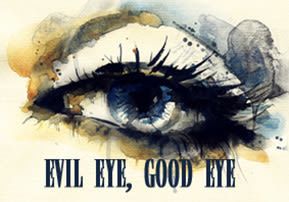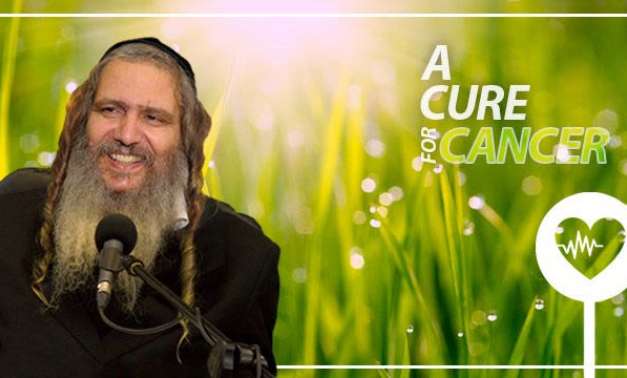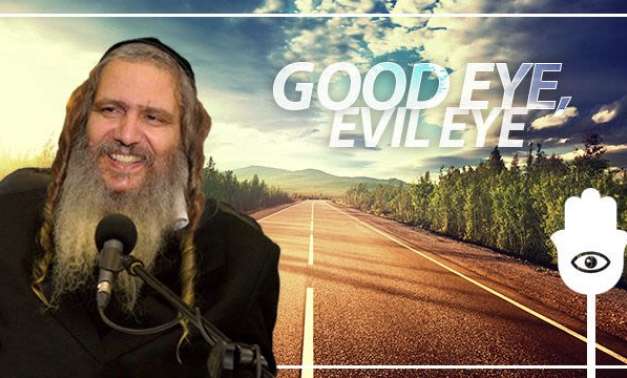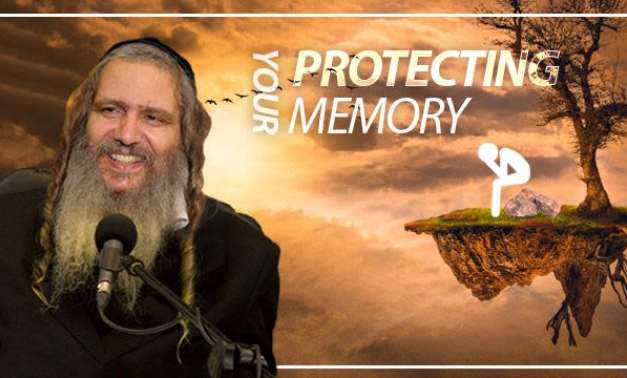
Vayechi: Evil Eye, Good Eye
Is the concept of "evil eye" only superstition? Is it found in Kabbalistic writings? Or is it actually part of the revealed parts of the Torah?

There seems to be a certain fascination with the mystical ideas of the Torah. One of the most well known is "the evil eye" or in Hebrew "ayin hara". Jews throughout the world when discussing good news or a major accomplishment, add the words "Bli ayin hara"-"there shouldn't be any evil eye".
Is this concept only for the superstitious? Or perhaps it is found in esoteric Kabbalistic writings? Or is it actually part of the revealed parts of the Torah? If it is the latter, then we can assume that there are messages for us and not just for the masters of the Torah's hidden secrets.
Towards the end of Jacob's life, as his health declined, Joseph realized that time was running out for his sons to receive a blessing from their grandfather so Joseph took his two sons and went to Jacob and was able to procure a number of blessings before Jacob's demise. Among them were the words directed to his sons: "and they should grow like fish within the land". Why were Joseph's sons blessed to be like fish? And if they  are supposed to have the qualities of fish, why should they be blessed to be outside of their natural habitat, to be "within the land"?
are supposed to have the qualities of fish, why should they be blessed to be outside of their natural habitat, to be "within the land"?
Rashi says that Jacob's intention was that they should be fruitful and multiply and also that the ayin hara (evil eye) shouldn't effect them. Clearly, this wasn't some esoteric concern but a major emphasis of his blessings.
This quality of not being effected by ayin hara is reflected in a story in the Talmud. The great Rabbi Yochanan was known for his exceptional beauty. His practice was to sit by the gate of the bathhouse as the women would exit so they could see his countenance and merit to have beautiful children. His peers wondered if he was concerned about ayin hara, to which he responded in the negative. He explained to them that he was from the offspring of Joseph who were blessed not to be harmed by the adverse effects of the evil eye.
The concern of ayin hara actually has numerous practical expressions. One specific law is that a person should not stand on the side of his friend's field of grain prior to harvesting. The concern is that the observer might be jealous and cause an ayin hara. Clearly, we see that the issues are not just theoretical but have a real place in Jewish law.
What is the mechanism of ayin hara and what can one do to protect oneself from its negative influences?
Rabbi Eliyahu Dessler (1892-1953, one of the great leaders of English Jewry) explains that the source of ayin hara is jealousy but with a curious twist. For example, Reuven is standing on the side of Shimon's field right before harvest. Shimon had a bumper crop and this causes Reuven pangs of jealousy. Of course, feeling jealous is not an appropriate response but the bottom line is that he is jealous. Shimon's success is the cause of Reuven's pain and since Shimon didn't hide that success he is held accountable by the Heavenly Court for the pain incurred and will suffer loss of his crops, the cause of the jealousy. Ayin hara means the bad eye that Reuven has towards Shimon which Shimon himself indirectly caused. In short, this is the mechanism of ayin hara.
If so, how is it possible to be safe from ayin hara which stems from jealousy, one of the most common negative traits? Based on the case above, one way is to hide or cover over one's successes. That which others don't see won't be a cause for jealousy. Another way is to say "Bli Ayin Hara"- "there shouldn't be an evil eye". According to the commentaries this works as a prayer that the Heavenly Court should have mercy on the person who inadvertently caused jealousy, since this was never his intention. Through these words he can be saved from the damaging effects of ayin hara.
However, more specifically, what did Joseph and his descendants do to merit protection from ayin hara that they passed this quality on to all future generations?
The Torah tells us that Joseph was exceptionally beautiful and that the women of Egypt would crowd around his entourage to catch a glimpse of him. The wife of his master Potiphar was also desirous of being intimate with Joseph. In short, there were no lack of opportunities for him to involve himself with the physical sights and pleasures of Egypt. Even so, we are taught that he held back from these allurements, not even glimpsing at those women who wanted to catch his attention.
Joseph could have looked upon his brothers with negativity and anger. His eyes could have been the vehicles for an ayin hara against those who had caused him such pain. Instead we find that he looked well upon each one of them with what is called an ayin tova, a good eye.
In short, he didn't look upon things that would entice him and he didn't look upon the brothers with disdain. His eyes were a reflection of his internal spiritual world, a world that was completely removed from the normal physical and emotional drives found in others.
This separate reality is symbolized by fish. Fish live in a completely different environment than the rest of animal life. There's no source for jealousy when someone is in a totally different place. Joseph was above and beyond ayin hara because he created for himself a spiritual bubble. He didn't put out jealousy and desire so he wasn't effected by it.
This incredibly high spiritual level goes one step further. We might imagine that such purity of thought can only function in a vacuum, like an ascetic alone on a mountaintop. However, this wasn't the case with Joseph. Not only was he able to create his own "protected" world but he was able to live with others at the same time. He was separate yet connected, elevated yet grounded. This idea is reflected in Jacob's blessing that Joseph's offspring should be like fish "within the land". They should live an exalted existence while interacting with society around them.
The Talmud teaches that ayin hara can be a source of great damage. Besides hiding our blessings and using the prayer "bli ayin hara", more importantly we have learned from Joseph the deeper way of saving ourselves from ayin hara, that based on how we look at others, so Heaven looks upon us. May Hashem grant us eyes that see only that which is good for them and to look well upon others. And may our "good eyes" cause that Hashem should have a "good eye" on us and shower us with spiritual and physical blessings.
* * *
Rabbi Dovid Charlop is on the teaching staff of the Neve Tzion Yeshiva in Telzstone, Israel.








Tell us what you think!
Thank you for your comment!
It will be published after approval by the Editor.